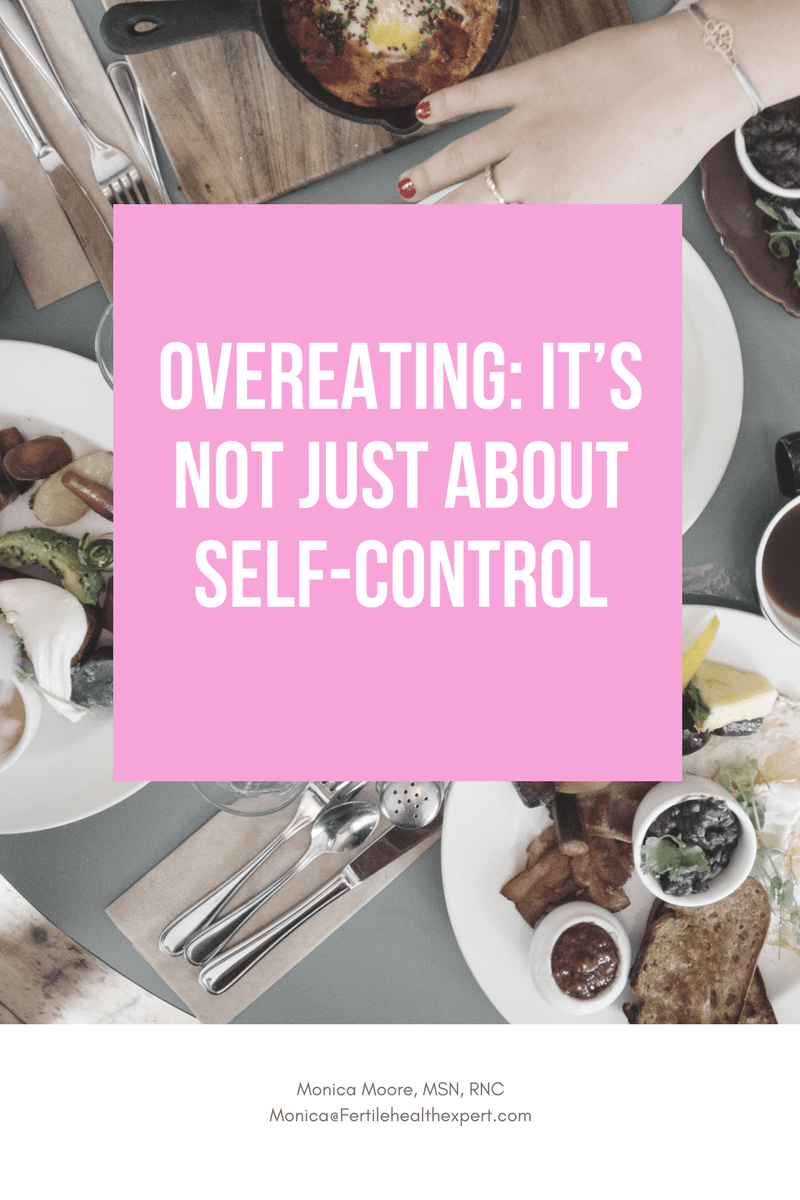
You might notice that some people seem to be able to maintain a healthy weight effortlessly while others really struggle. Maybe you personally fall into one of these two groups and it’s difficult for you to relate to the other.
However, gaining an understanding of the reasons why people struggle to lose weight can help give you a better perspective when working with overweight or obese patients.
Traditionally, we are told that gaining or losing weight adheres to a mathematical formula: if caloric intake = caloric expenditure, you maintain weight. Following that same logic, caloric intake > expenditure = weight gain, and caloric intake < expenditure = weight loss.
But we are human beings, not math problems, so we have some nuances that are not addressed by a simple formula.

Satiety is the result of a cascade of events. It starts with the sensory perception of food, called the cephalic phase. Cephalic phase responses (CPRs) are physiologic responses that your body has when presented with the sensory aspects of food (such as sight, smell and taste) which communicate with the brain and advise it to start the process of digestion (Smeetz et al, 2010).
Your body starts the process of achieving fullness even before eating a bite of food. As you eat, there are receptors in the stomach that respond to the volume of food once it arrives there. As the stomach expands, due to the bulk of food or liquids ingested, signals are sent out to eventually stop eating.
Hormones also influence eating patterns. A substance called leptin, known as the ‘satiety hormone,’ is produced by fat cells after someone eats. Leptin is part of a feedback system with the hypothalamus, a structure in the brain that controls, among other things, appetite.
When the system is working properly, increased leptin levels signal the brain to stop eating. Another hormone, dopamine (sometimes known as the feel-good hormone because it is secreted in response to activities that, well, make you feel good) is released when visualizing food or thinking about eating. This process is termed the ‘dopaminergic reward system’ as it activates reward centers in the brain so that people get a rush, so to speak, from eating. How much of a perceived reward is not the same for everyone, and this difference can also be an important contributor to over-nutrition (Val-Laillet, et al, 2015).
Ok, so with all of these mechanisms in place, how can anyone be overweight? Must be due to lack of self-control, right?
Actually no, and here’s why: Unfavorable genetics are largely to blame. Some people are born with glitches in the satiety system at any and all levels.
For example, human and animal research seems to indicate that certain types of gut bacteria make it harder to lose weight (Million et al, 2013). In one experiment, lean rats who had no endogenous stomach bacteria were injected with the bacteria of either rats who were obese or rats who were lean.
Guess what happened to the lean rats who were injected with the obese rat bacteria? They gained weight. So, it seems that people who have this gut bacteria are already prone to being overweight before they even put food in their mouth. Wouldn’t it be great if we could all be injected with lean-weight gut bacteria? I’m sure this is in our future but, unfortunately, we are not there yet.

Metabolic differences can make some more prone to overeating. Studies that compared dieters (people who diet frequently and, therefore, are likely overweight) with non-dieters found that dieters need to eat less than non-dieters just to maintain weight. Any extra calories, then, are converted and stored as fat in this group.
The cause of this could be that they are dieting and restricting their intake or that being overweight puts them at risk for this, but the outcome is the same: it’s easier for this group to gain weight while eating the same amount as some of their peers. Not fair, right?
Remember the dopaminergic reward system? There is emerging evidence that people who are obese have differences in their genes that affect dopamine signaling, such that their reward centers are hyper-responsive to food cues. They are susceptible to food cravings and overconsumption because they get a bigger ‘rush’ from seeing or eating food more than their lean counterparts do (Val-Laillet, et al, 2015).
This dysfunctional system can be so strong that it overrides the normal controls and feedback systems in the body that are in place to assure caloric and energy equilibrium. The reward centers for lean people may be less responsive to food, so it’s less of an effort for them to push the bread basket away or leave food on their plate. For them, eating isn’t the source of intense pleasure, so they are not as tempted by appetizing food, which may be misconstrued by others as self-control. If the above isn’t bad enough, there is something called, ‘leptin resistance.’ If you recall, leptin is the satiety hormone, the one made by fat cells that signals the brain to tell it to stop eating. Well, it has been found that obese people can have even higher levels of leptin than their lean counterparts (this makes sense since obese individuals have a more adipose or fatty tissue) but not be as sensitive to them (Myers, et al, 2012).
As a result, even with these high levels, obese people still have a desire to eat. This becomes a vicious cycle where the leptin resistance leads to overeating, which increases fatty tissue, which increases leptin (but the brain doesn’t respond to it) and the cycle perpetuates itself. As of now, there is no ‘cure’ for this. Although some pharmaceutical approaches to increase leptin sensitivity appear promising, none are currently approved.
Don’t rush the soup. All of the above factors seem to make it easier for naturally lean people to succeed, and create very real challenges for people who are obese. These challenges aren’t insurmountable though. There are some strategies that might help. Taking extra time to smell and savor your meal before you eat it prolongs the cephalic phase of satiety and allows extra time for your body to recognize that it might be full. Eating soup or drinking water prior to eating can induce greater fullness by delaying gastric emptying, and stomach distention stimulates the gut receptors to tell the brain to stop eating. Also, there is some data to show that people can reset their leptin levels with long-term healthy lifestyle changes like eating whole foods that take longer to digest and exercising regularly.
Most importantly, for us in the health care industry, it’s important for us to not judge others who are overweight. Weight bias seems to be one of the few remaining acceptable biases left. Studies on weight bias report that overweight people have been labelled as ‘lazy, awkward and non-compliant’ as well as other hurtful and deleterious terms, even by the medical providers who take care of them (Foster, et al, 2003). As you can imagine, then, even a perceived weight bias by you or someone in your practice would negatively affect patient care and retention of overweight or obese individuals.
Related: How to talk to your fertility patients about their weight without seeming like a jerk
Since obesity is on the rise in the U.S., and an increasing number of our patients will be affected by this, it’s incumbent on nurses to understand what leads to over-eating.
We need to realize that eating behavior is multifactorial, the result of a complex interplay of many factors, only some of which are addressed here. Blaming over-nutrition on a lack of self-control is not only unkind, it’s untrue. Please realize that any discussion of weight should be done kindly, compassionately and with the knowledge that, for some, the decks are stacked against them.
References:
Foster, et al. Obesity Res 2003, 11: 1168-77.
Million, M. Et al. Clin Microbiol Infect 2013, 19(4): 305-313.
Myers, M.G. Et al. Cell Metab 2012, 15: 150-156.
Val-Laillet, et al. Neuroimage Clin 2015, 8: 1-31.
Sheets, et al. Nutr Rev 2010, 68(11), 643-55.








